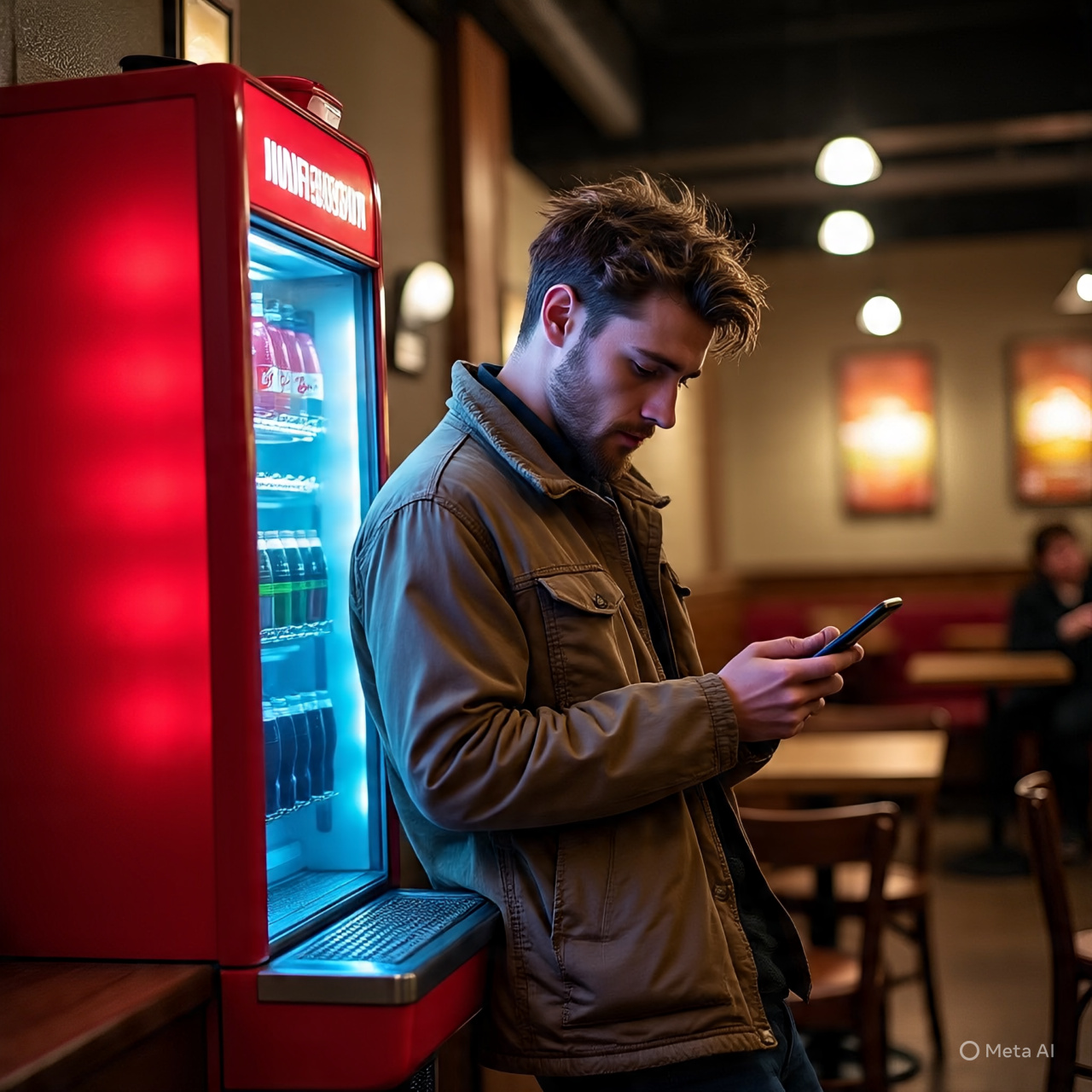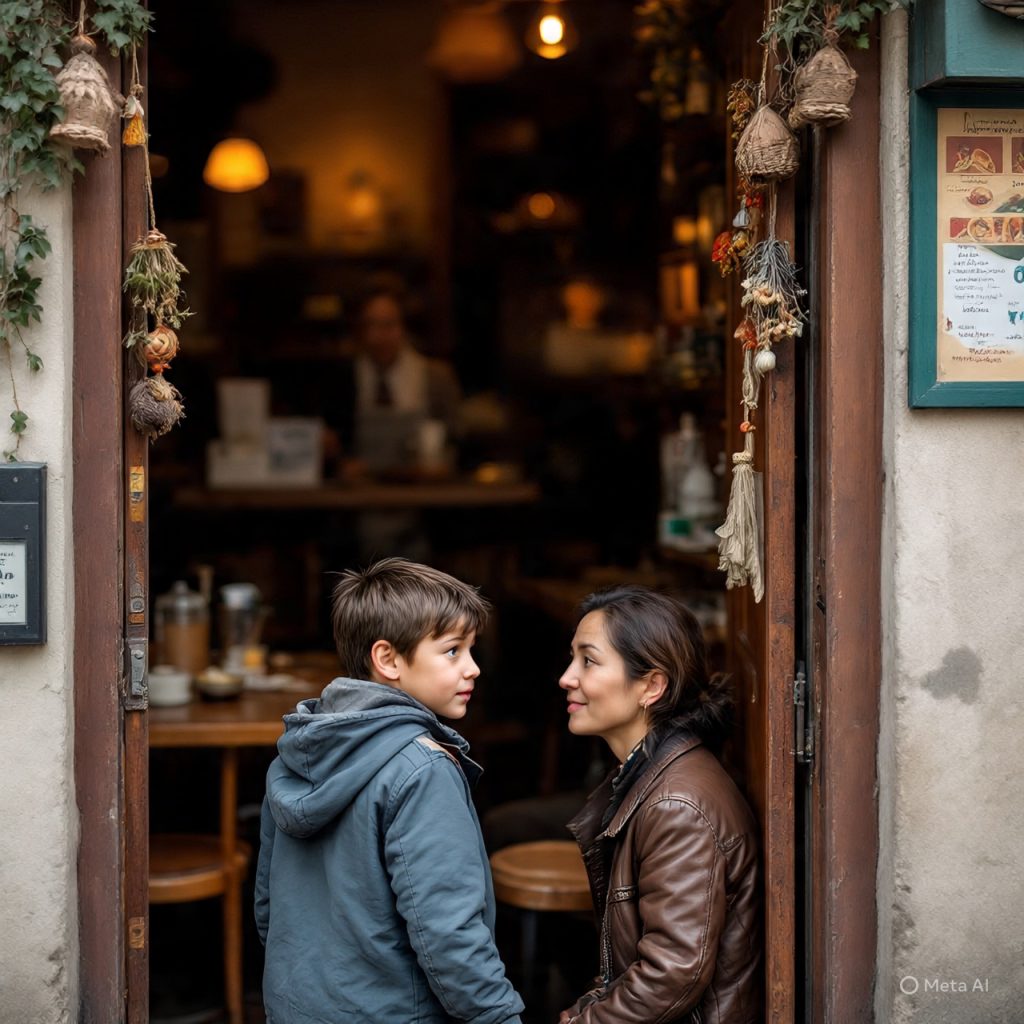On a brisk Wednesday morning in early October, Marcus Caldwell parked his dusty pickup in front of Sunrise Junction Café. He stepped out, the door creaking shut behind him, and tugged his flannel shirt closer against the wind. If anyone had recognized him, they might have expected to see the polished blazer and watch of a business owner. Instead, Marcus wore faded jeans, a thrift-store cap, and sneakers that had seen better days.
That was intentional.
For thirteen years, Marcus had poured his energy into building Sunrise Junction from a single roadside eatery into a small chain scattered across Oregon. It had started with his grandmother’s cornbread recipe and a rented food trailer. The first café drew crowds; word of mouth carried it further. The places became known not only for hearty breakfasts but for the way every customer felt like family.
But lately, something had shifted. Marcus had noticed complaints creeping into online reviews: cold pancakes, inattentive service, staff who seemed more interested in their phones than their guests. He could have sent in a hired evaluator, but he knew numbers and reports wouldn’t capture the truth. If he wanted to understand, he needed to see it for himself.
He chose the original location in the small city of Ashgrove. As he crossed the street, the air smelled of roasting coffee beans from the roaster next door. The neon Open sign in the café’s window flickered faintly, like it was tired.
Inside, the booths and checkerboard floor looked the same as they had the day he’d hammered the last nail into the counter. But the people behind it were strangers to him.
One cashier—a tall young man in a wrinkled apron—was leaning against the soda machine, scrolling through his phone. Beside him, a middle-aged woman with graying hair methodically rang up an order without glancing at the customer’s face.

Marcus stood at the counter for half a minute before the woman finally said, without looking up, “What’ll it be?”
“Morning,” Marcus said. “Just a breakfast burrito and black coffee.”
She tapped the register keys. “Eight even.”
He handed her a ten. She pushed the change across without a word.
Marcus slid into a corner booth, sipping his coffee and watching the room. A young couple near the window waited ten minutes for their toast. A man in a construction vest tried to get someone’s attention about a wrong order, only to be waved off. When a busboy dropped a stack of plates, his muttered curse carried across the dining area, right past a toddler eating oatmeal.
Then Marcus overheard the tall cashier whisper to a coworker, “Guy in the corner’s probably here to sit all day. Bet he tips a buck, max.” They chuckled, unaware Marcus could hear.
The burrito, when it came, was lukewarm, the tortilla tough. He chewed slowly, his mind heavy with the realization that the problem was deeper than bad food—it was the erosion of the café’s spirit.
The bell above the door jingled, and in walked a woman and a boy who looked about eight. Their coats were worn thin; the boy’s sneakers were held together with tape. He stared longingly at the cinnamon rolls in the display.

The woman approached the counter. “Do you still have the early-bird special? We’ve only got five dollars.”
The cashier shook his head. “Price went up to six seventy-five.”
Her shoulders dropped. “Then… just a coffee for me.”
“Mom,” the boy said softly, “you should eat too.”
Before she could answer, the middle-aged woman behind the register said, “Step aside if you’re not ordering. Line’s growing.”
Marcus felt a hot surge in his chest. He got up, pulled a twenty from his wallet, and set it on the counter.
“Breakfast is on me,” he said.
The woman blinked. “That’s kind, but—”
“No buts,” Marcus said. “Get whatever you want. And throw in two hot chocolates.”

The cashier shrugged and rang it up without thanks. But the boy’s smile could have lit the whole café.
When they’d finished eating, Marcus walked over. “Hope you enjoyed it,” he said. “I’ll be right back.”
He returned to the counter and pulled a slim leather card holder from his pocket. From it, he took an engraved badge and laid it on the counter.
“I’m Marcus Caldwell,” he said evenly. “Owner of Sunrise Junction.”
The phone-scrolling cashier froze. The older woman’s eyes widened.
“I came here today as a customer,” Marcus said. “What I experienced isn’t what I built. We don’t just sell food—we offer a welcome. If that’s gone, we’ve lost the heart of this place.”
Silence.
“I’m not firing anyone,” he continued, “but starting tomorrow, we retrain every shift. Kindness is part of the job, not an optional extra. If we can’t do that, we shouldn’t be here at all.”
Then he turned to the mother. “Ma’am, here’s a gift card. Whenever you and your son want breakfast, it’s covered.”
Her eyes glistened. “Thank you, Mr. Caldwell. You don’t know what this means.”
“I think I do,” Marcus said.
Stepping back into the cool air, he felt a renewed determination. The work ahead would be tough, but the warmth would return—one plate, one smile at a time.